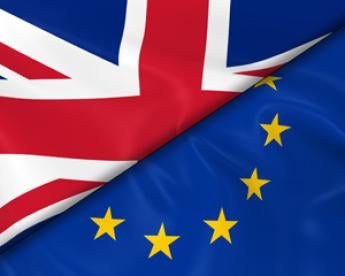Uncertainty and Cautiousness
As the 23 June date for the British referendum about its future in the European Union (EU) comes closer, the EU political leadership in Brussels remains uncertain how best to support the ‘Bremain’ forces in order to avoid the embarrassing and damaging departure of one of its largest and strongest members.
None of the political leaders in Brussels or in other EU capitals want to see the UK leave, but they have learned to be cautious and show restraint when it comes to engaging in EU related discussions in Britain. Often enough they were told to stay neutral (or silent) in order not to make things worse for the pro-EU forces. But they now ask themselves whether their passive stance is a sufficiently supportive strategy for a decision of this magnitude for all partners involved – also because many traditionally pro-EU industry stakeholders in the UK have remained reserved so far, leaving the momentum to the “Leave” side.
Political and Regulatory Busyness at the EU Level
The first part of 2016 has been unusually busy at the EU level – partially diverting the attention paid to the Brexit referendum. The EU has many large scale challenges to solve: the still ongoing weak economic situation in the aftermath of the global financial crisis, the largest refugee crisis affecting Europe since the Second World War, the recent terrorist attacks and related security challenges, the Panama leaks or the continuing debate about Greece’s viability in the Eurozone (Grexit), to name just a few.
On the regulatory front, various European Commission signature initiatives are in full swing and require political attention: the Digital Single Market, the Capital Markets Union, the Banking Union or the Energy Union continue to advance the Single Market with its 500 million inhabitants.
Supporting the (B)Remain Camp while Preparing for the Eventuality
The top EU leadership has clearly spoken out in favor of the UK to remain a part of the European family. Already in 2014 European Commission President Juncker has given the (for the UK so important) financial services dossier to the British EU Commissioner Jonathan Hill, and has recently asked Jonathan Faull, the most senior UK EU official in Brussels, to lead the Commission’s high level Brexit task force.
Influential national political leaders, including Angela Merkel, have clearly spelled out that they want the UK to remain, and have grudgingly accepted UK specific political concessions in an EU summit in February in order to support David Cameron. They are wary of potential Brexit copycats across Europe.
Parts of the EU population has less understanding for the apparently self-inflicted situation the British political leadership has maneuvered itself into, and Britain has used up a lot of political goodwill already.
Behind closed doors, EU institutions such as the European Central Bank and the European Commission are preparing itself for the eventuality of the British voting to “leave” on 23 June. They cannot afford not to, given the enormous impact it would have on Europe – akin to the “Grexit” situation in recent years.
Lessons to be Learned?
Right wing and Europe-sceptic parties have been on the rise across Europe in recent years, and have made “Europe” more vulnerable and more challenging to defend at national level. The overall weak economic situation does not help either. Still too often national policy makers publicly criticize and blame Europe for local problems in order to divert the anger of their local electorates away from them and their political parties to ‘disconnected and elitist’ Eurocrats in far-a-way Brussels.
One consequence of such a behavior, however unjustified and unsubstantiated the individual criticism may be, is increasing skepticism amongst the electorate regarding “Europe”. Why support Europe if I am consistently told that Europe takes actions which make me worse off? The European Commission is reacting and will in the next two years spend up to EUR 30 million in a large scale PR campaign to “achieve a better understanding by European citizens of the EU, its priorities and activities.”
This political landscape also makes popular votes and referenda very unpredictable instruments. Many voters are unhappy with their current situation or prospects, and will express their anger at the polls – at times seemingly detached from the specific topic of the referendum. With the recent experience in the Netherlands, where voters said ‘Nee’ in a referendum on the EU Association agreement with the Ukraine (usually an unemotional and generally supported activity at EU level), policy makers at EU and national level will think twice before calling voters to the next referendum on European matters.
Preparing Yourself
The overall uncertainty related to a potential Brexit is large and little is known about how the separation process between the UK and the European Union would look like in practice. Many questions remain unanswered, including the political dynamics a Leave decision would trigger within and outside the UK.
What seems certain is that if Britain does leave the EU, a multi-year separation and negotiation process will commence.
When Greenland left the European Economic Community in 1985 it took a full three years to complete – and this even though they only had a few really important political issues to solve. The UK has been part of the European Union since 1973 – thus the social, legal and economic entanglement is much higher.
In conclusion, given the amount of uncertainty and issues involved in a potential separation process, it is of critical important to stay on top of relevant developments at national and EU level, and to ensure that your interests are well represented and protected during such an unprecedented process.




 i
i


